[Due to an oversight (clearly!), Galactic Journey was not included on Locus' Awards Ballot this year. If you're a fan of the Journey, we be grateful if you'd fill us in under Fanzine!]

by Victoria Silverwolf
Until a decade or so ago, science fiction rarely dealt with erotic themes in an open way. That began to change with Phillip José Farmer's famous story The Lovers (1952), which deals with a love affair between a man and a female humanoid. Her alien reproductive system, described in detail, is the key to the plot.
Equally groundbreaking was The World Well Lost (1953) by Theodore Sturgeon. This gentle, beautifully written story depicts homosexuality in a sympathetic way.
SF writers are now free to look inside the bedroom. But are they ready to peer into the bathroom? The lead novella in the latest issue of Worlds of Tomorrow represents a first step inside.
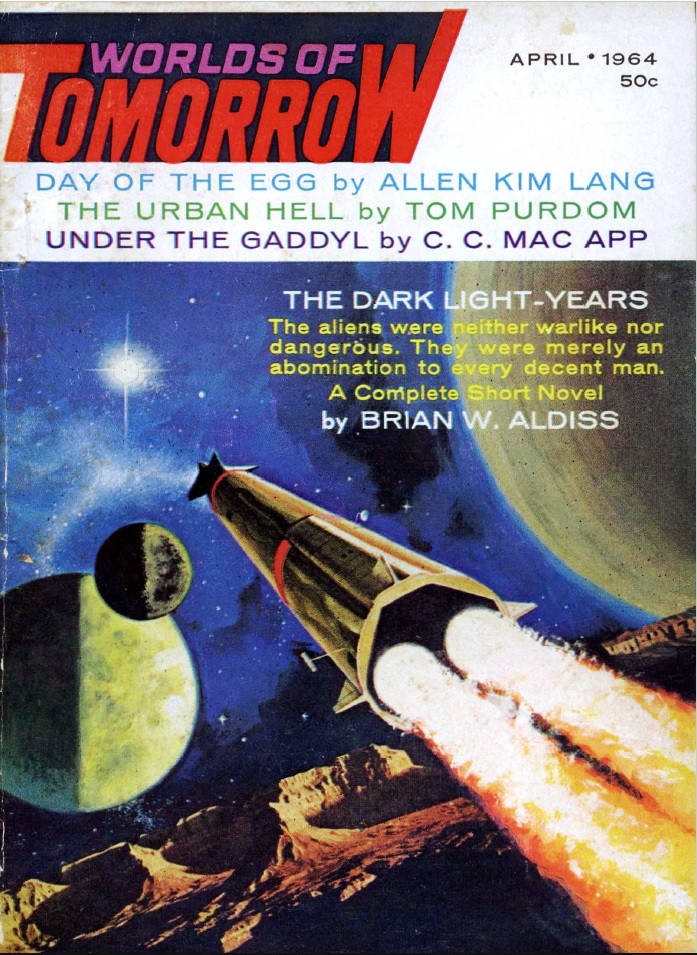
Cover by Paul E. Wenzel
The Dark Light-Years, by Brian W. Aldiss
By sheer chance, humans and aliens arrive at almost the same time on an uninhabited world. The aliens look like hippopotamuses with six limbs and two heads. The humans kill most of the aliens at first sight, taking two prisoners. (Right away, we know that the author is going to depict the human species as violent and xenophobic.) Not only are the aliens repulsive to human eyes, their behavior is offensive in the extreme.
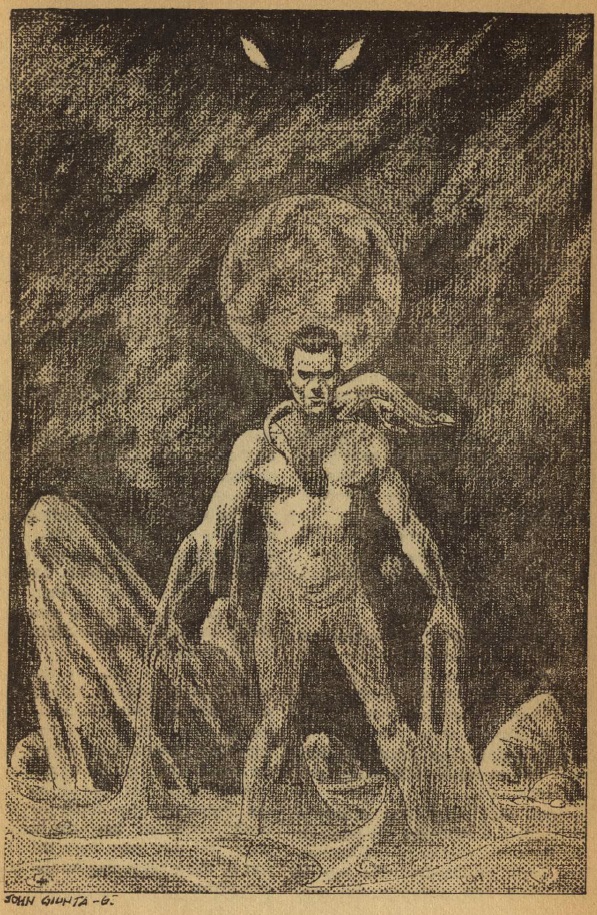
(Sensitive readers may wish to skip the rest of this review.)
The aliens live in their own excrement, considering this the most important part of their culture and religion. All attempts to communicate with the aliens fail, partly due to the disgust they elicit from their captors.
The plot is more complicated than I've made it sound, starting with a man who has lived on the aliens' home world for many years. A long flashback describes the first encounter between the two species.
The point of view shifts to that of the aliens, and we learn their history. The climax returns to the beginning, and ends in tragedy.
This sounds like a very grim story, but it's also full of satire and dark humor. The author offers a couple of scatological puns. It would be easy to dismiss this as a schoolchild writing naughty words on a blackboard, but the intent is more serious than that. Despite a jumpy narrative technique, the story powerfully portrays the impossibility of understanding between radically different beings.
Four stars.
Package Deal, by James Stamers
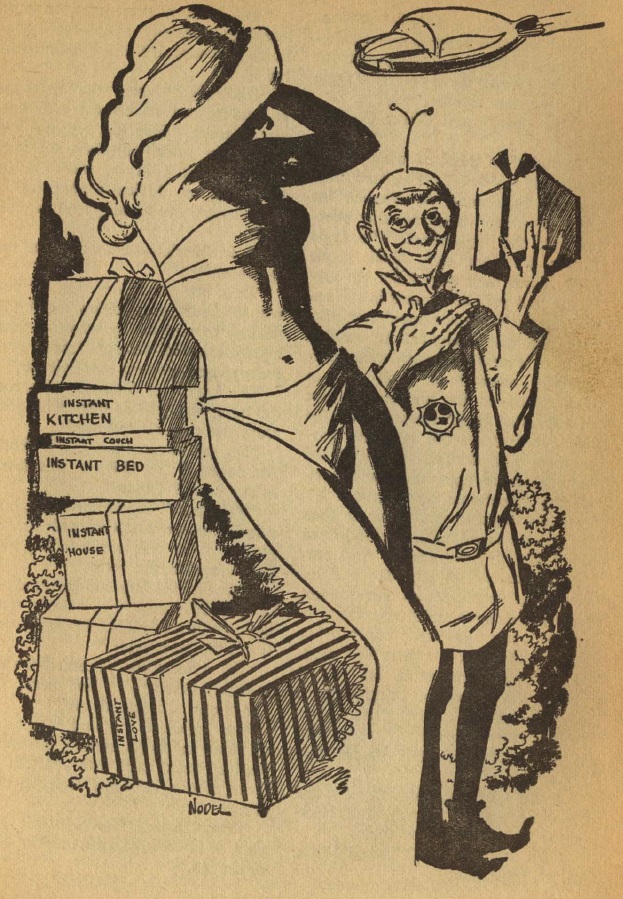
A married couple retire to another planet. Their alien hosts provide what they need in the form of boxes that change into everything from booze to houses. Things don't work out well.
That's all there is to the plot. The absurd concept is played for laughs, and doesn't achieve any. The two women in the story are a fat, nagging shrew and a teasing sexpot.
One star.
The Apprentice God, by Miriam Allen DeFord
In free verse, the author describes how a tentacled being accidentally damaged a tiny world while studying it. The knowledge that it contained sentient creatures leads to profound remorse. Although the outcome of the poem is inevitable, the style is elegant and stately.
Three stars.
The Urban Hell, by Tom Purdom
This article describes the ways in which large cities might exist in the future, and compares this to science fiction's visions of tomorrow's metropolises. Giant residential skyscrapers surrounded by parks? Horizontal cities designed for automobiles? Downtowns consisting of low buildings, with a mixture of houses, shops, and factories? All of these ideas are presented in an interesting and informative way.
Four stars.
Name of the Snake, by R. A. Lafferty
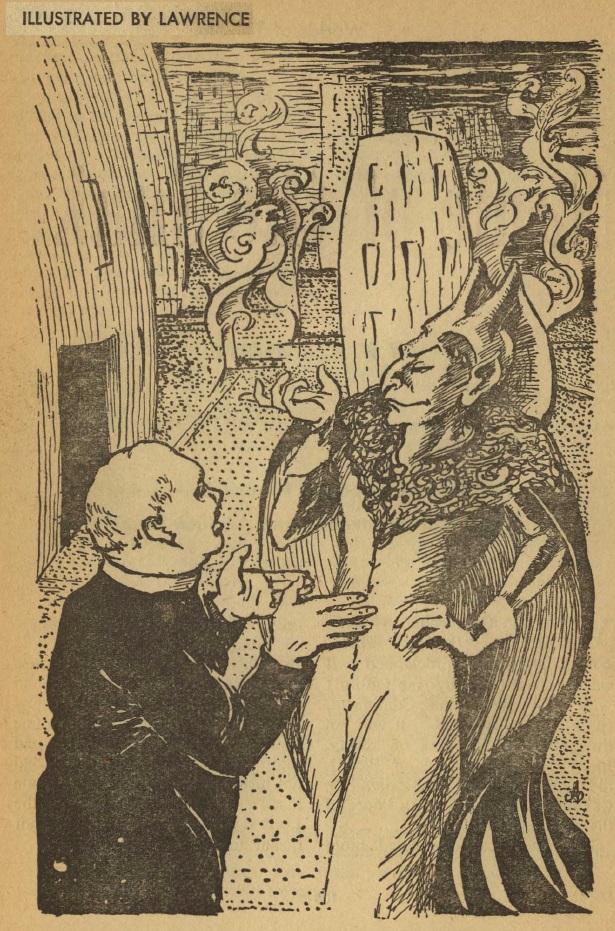
A Catholic priest journeys to a planet of aliens who claim to be without sin. (I wonder if this is a response to James Blish's 1958 novel A Case of Conscience, which has the same theme.) He admits they lack human vices, but discovers they have new evils of their own.
The author manages to create a serious theological fable that is also full of wit. The ending, in particular, makes use of a cliché from magazine cartoons in a new and meaningful way.
Four stars.
Under the Gaddyl, by C. C. MacApp
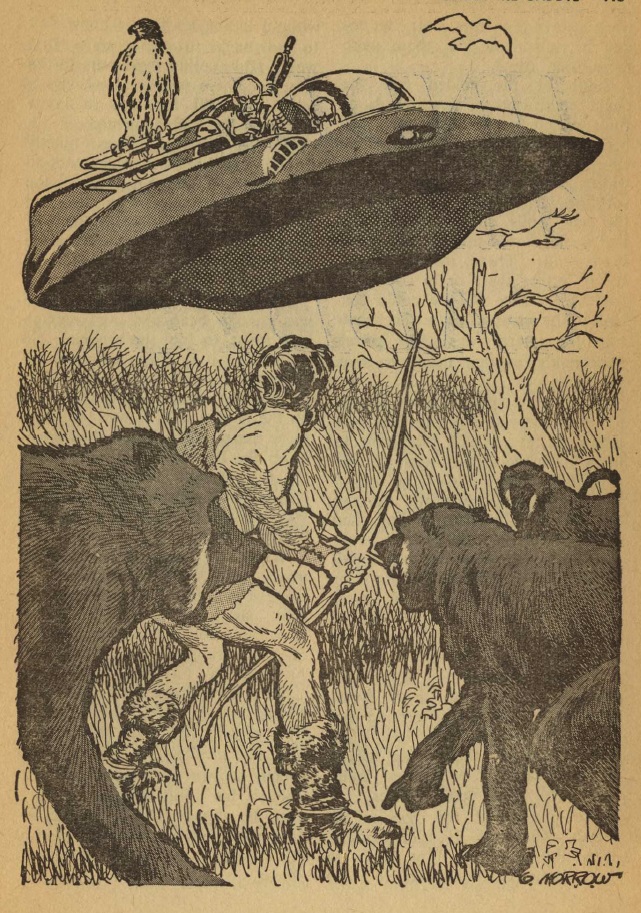
Alien invaders have ruled Earth for many years. Most human beings are slaves. A privileged few are free, allowed to struggle for survival in primitive conditions. When escaped slaves steal an alien weapon, even free humans are in danger. The hero and his family make a hazardous journey to escape the vengeful aliens. Mutant humans show up at one point. They play an important role in the story, but seemed forced into the plot.
This is a typical science fiction adventure story. It is competently told and holds the reader's attention, but there is little new to be found here.
Three stars.
Summing Up
Publishing a story that is certain to offend many readers shows boldness on the part of editor Frederik Pohl. The other contents of the magazine are far less daring, although most of them are worth reading.
Those of you with sharp eyes will notice that Day of the Egg by Allen Kim Lang, announced on the front cover, does not appear. That's not the only error. My copy has many of the pages in the wrong order, making reading a chore. I hope the habits of the aliens in the Aldiss piece didn't shock the designers and printers into forgetting how to do their jobs.
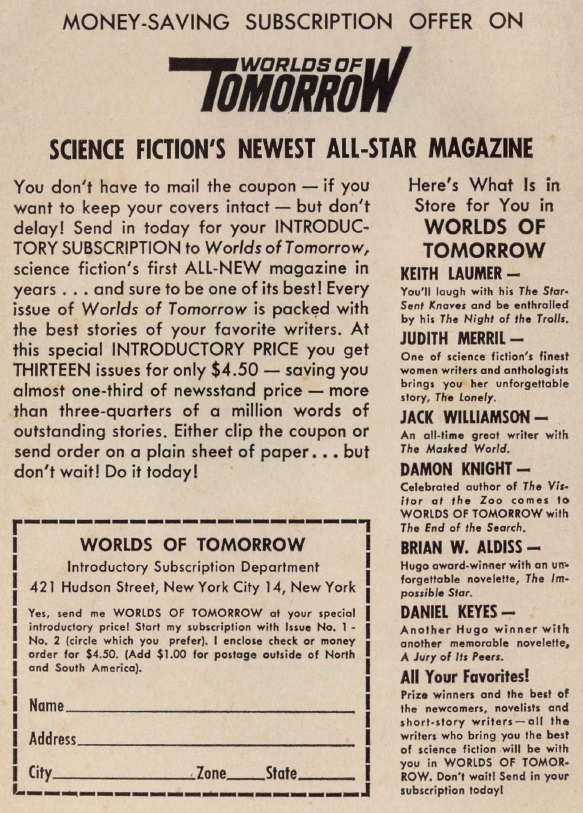

![[February 17, 1964] Breaking Taboos (April 1964 <i>Worlds of Tomorrow</i>)](https://galacticjourney.org/wp-content/uploads/2019/02/6312017cover-672x372.jpg)

![[February 13, 1964] Deafening (the March 1964 <i>Amazing</i>)](https://galacticjourney.org/wp-content/uploads/2019/02/640213cover-672x372.jpg)








![[February 9, 1964] Bargain Basement (March 1964 <i>IF</i>)](https://galacticjourney.org/wp-content/uploads/2019/02/640209cover-672x372.jpg)







![[February 1, 1964] The Vast Wasteland (February 1964 <i>Analog</i>)](https://galacticjourney.org/wp-content/uploads/2019/01/640201cover-672x372.jpg)
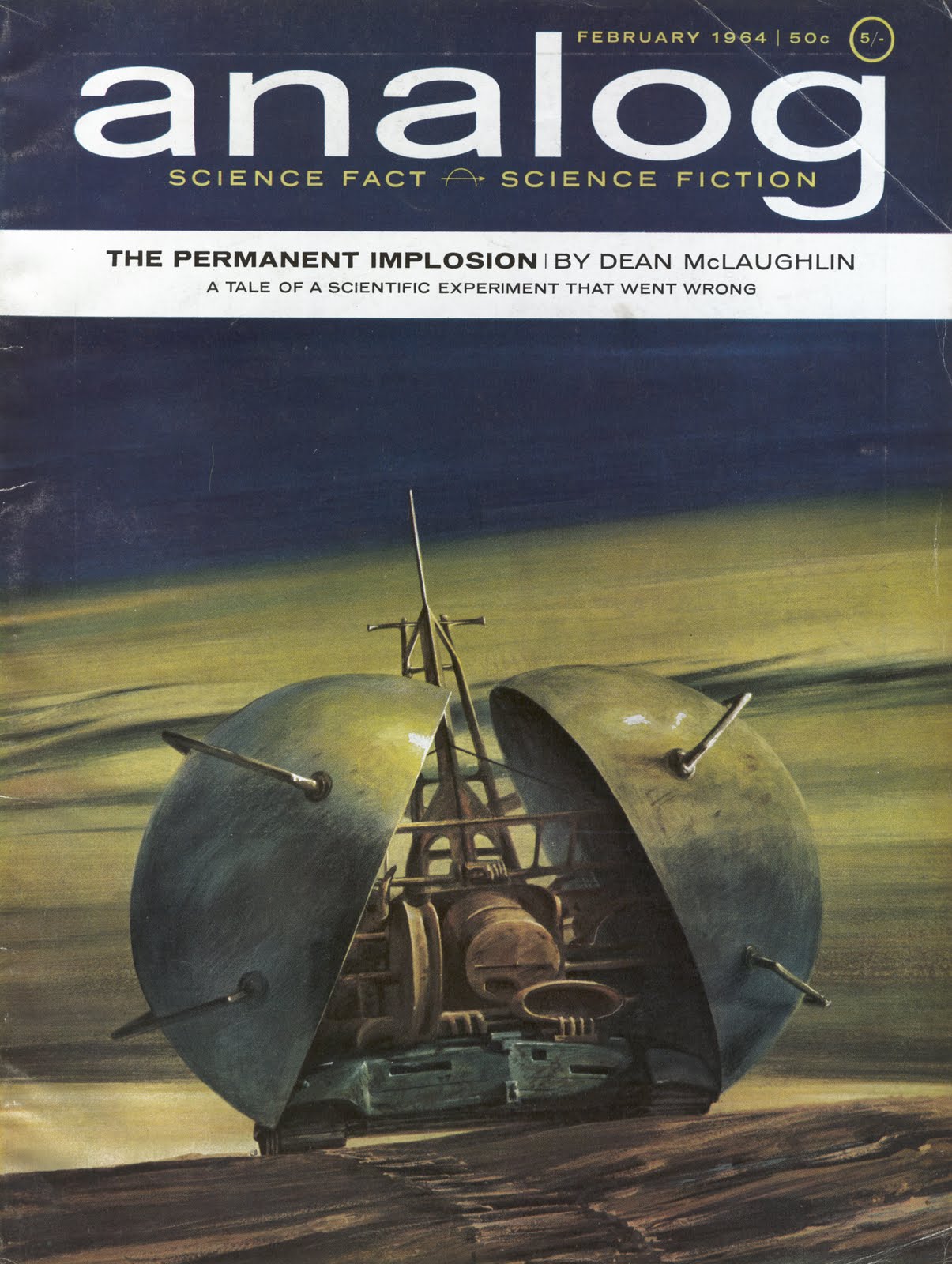
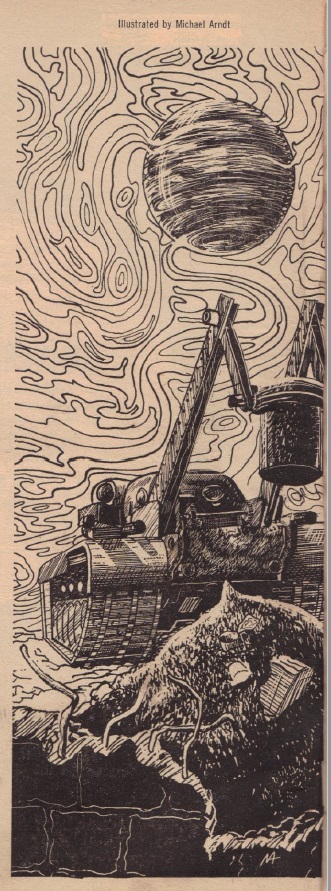
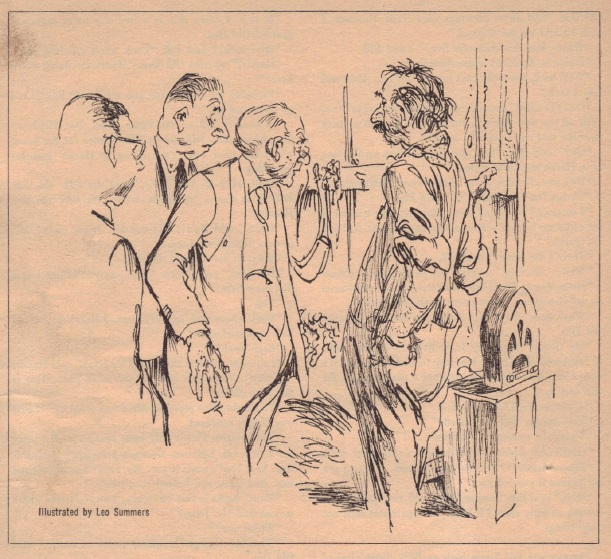
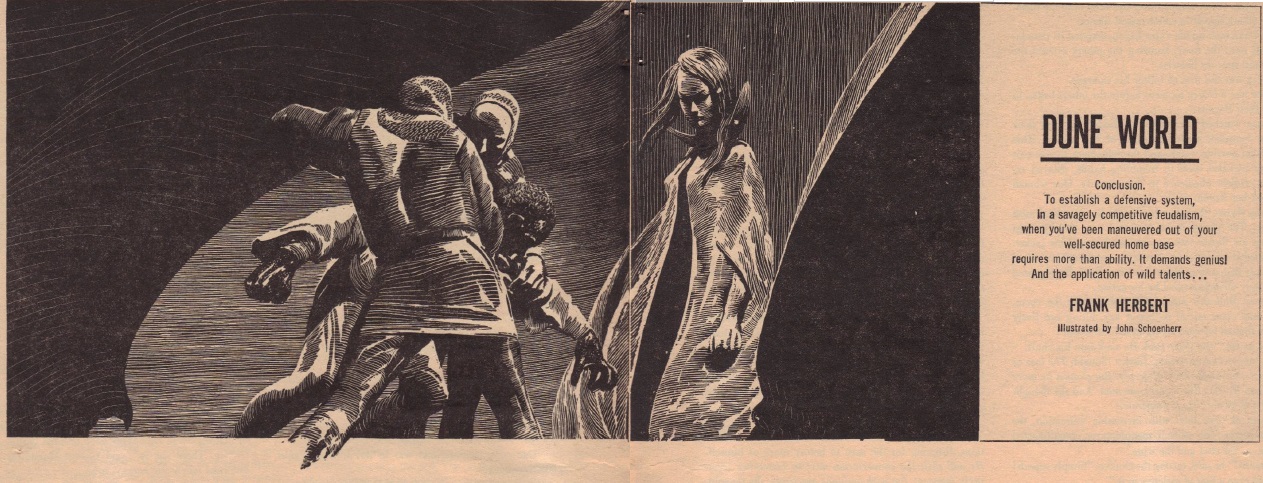
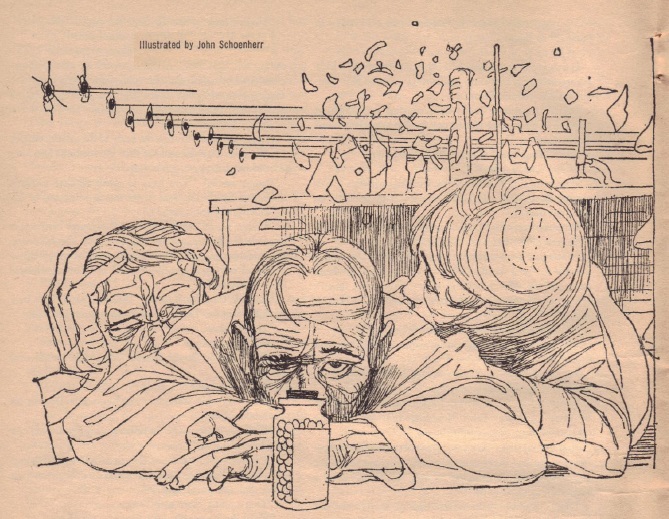

![[January 28, 1964] Beatles, Prisons and Doctors ( <i>New Worlds</i>, February 1964)](https://galacticjourney.org/wp-content/uploads/2019/01/640128cover-652x372.jpg)

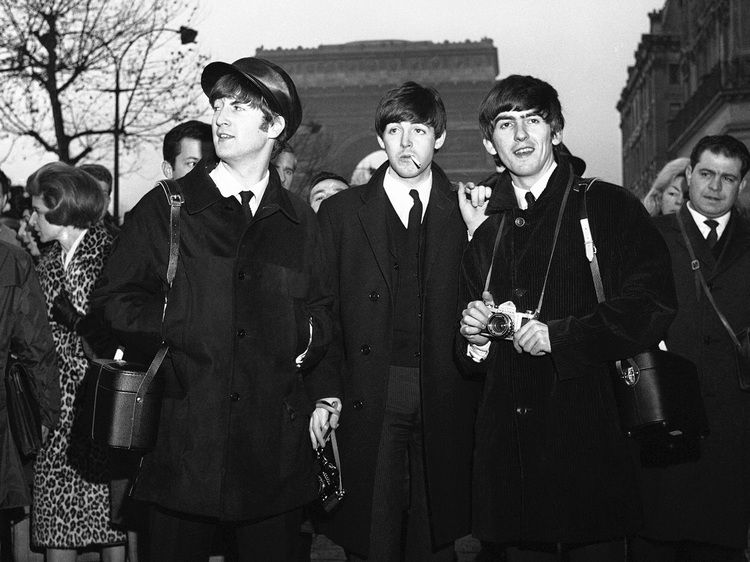



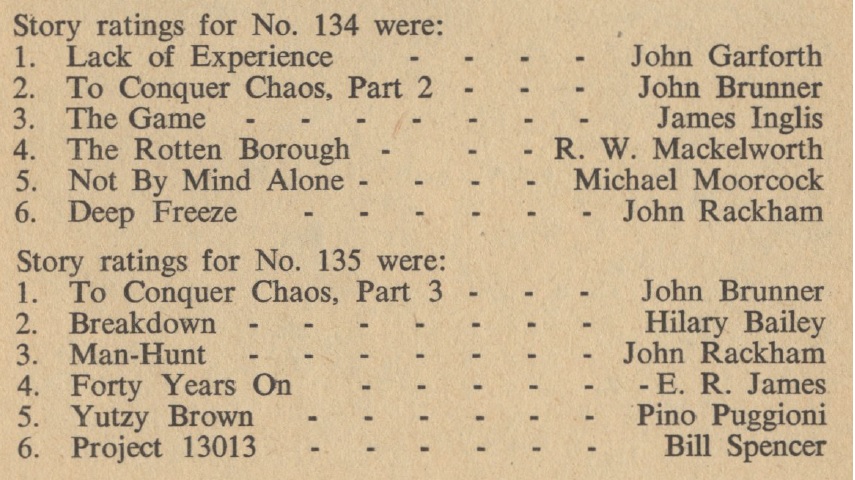
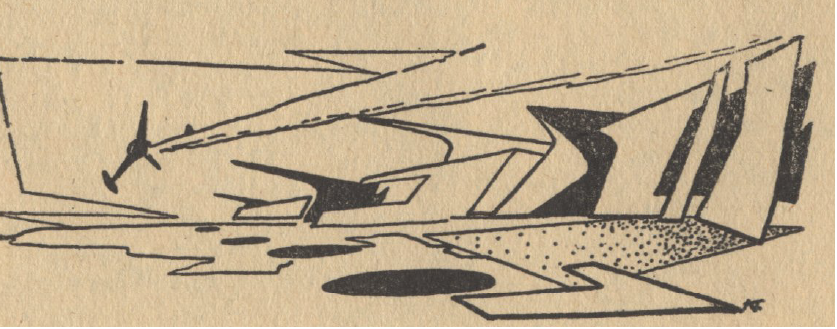
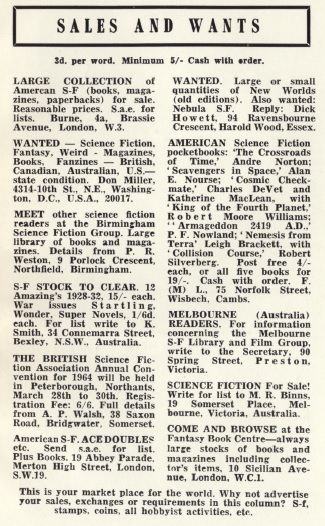
![[January 22, 1964] The British Are Coming! The Americans Are Here! (February 1964 <i>Fantastic</i>)](https://galacticjourney.org/wp-content/uploads/2019/01/640122cover-513x372.jpg)



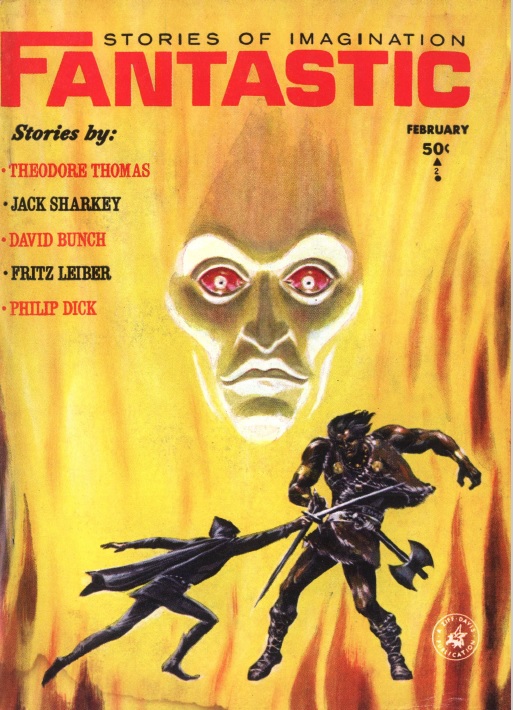

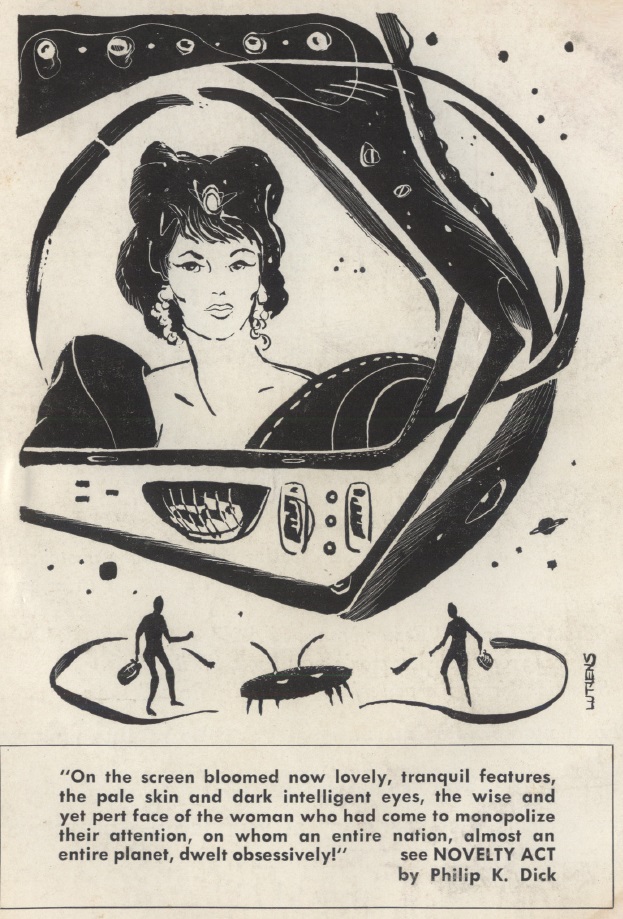

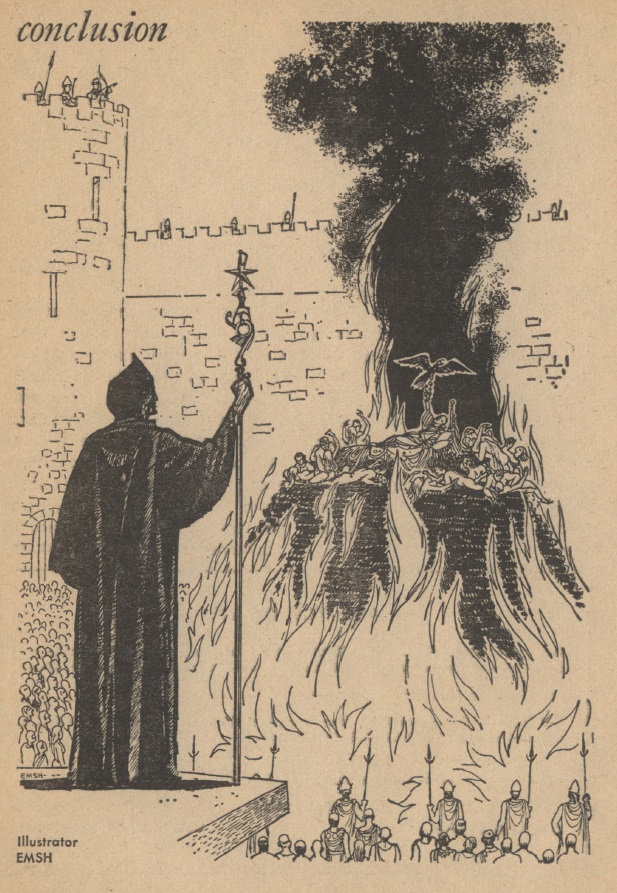


![[January 18, 1964] Pig's Lipstick (February 1964 <i>Fantasy and Science Fiction</i>)](https://galacticjourney.org/wp-content/uploads/2019/01/640418cover-554x372.jpg)
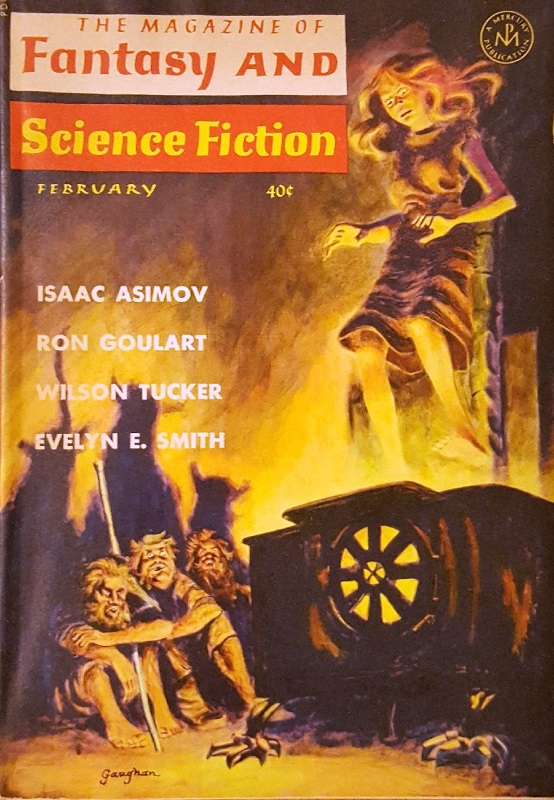


![[January 12, 1964] SINKING OUT OF SIGHT (the February 1964 <i>Amazing</i>)](https://galacticjourney.org/wp-content/uploads/2019/01/640112cover-672x372.jpg)





![[January 8, 1964] A Taste of Homely (February 1964 <i>Galaxy</i>)](https://galacticjourney.org/wp-content/uploads/2019/01/640108cover-570x372.jpg)





![[January 2, 1964] All's well that ends well (January 1964 <i>Analog</i> science fiction)](https://galacticjourney.org/wp-content/uploads/2019/01/640102cover-653x372.jpg)











